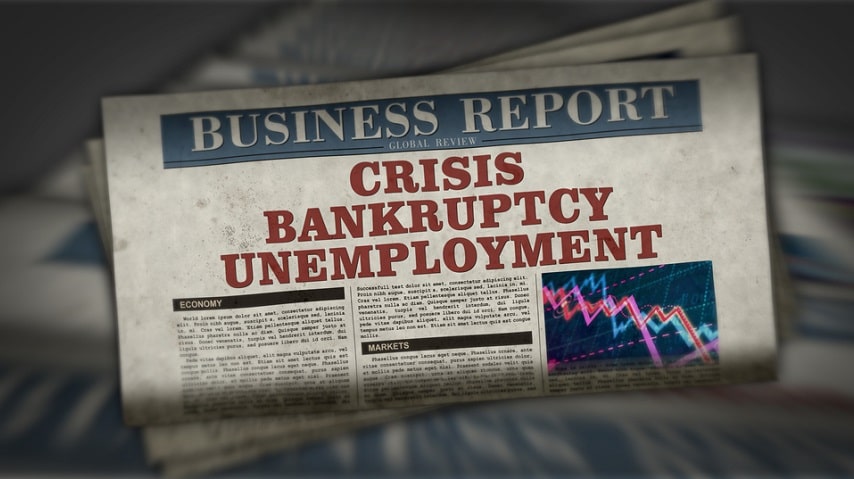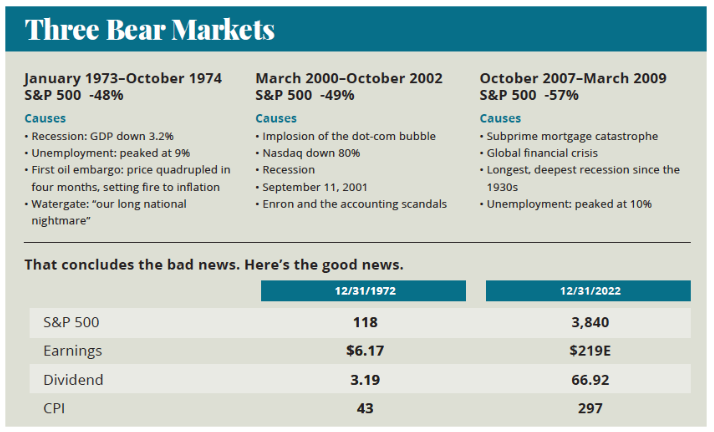The Investing Lessons of History
Here we assess the 3 largest bear market experiences during the past 5o years:
Summary
- Even as the world endured these three episodes of multiple crises, the great American (and Global) companies found ways to grow and prosper in these 50 years.
- The S&P 500 went up 35 times; its cash dividend rose 21 times, far outstripping inflation, up “only” seven times.
- The average annual compound rate of total return (dividends reinvested) of the S&P 500 was 10.2% – about equal to the hundred-year average, despite halving three times!
- No one could have timed this. The only way to be sure of achieving the premium returns of equities is to ride out their often significant but always temporary declines.
What’s happening at any given time in the economy and the markets is never the issue.
It’s how you are reacting – or, with our good counsel, choosing not to react – to what’s happening.
Our message
- Owning mainstream Global equities has historically been the simplest, most efficient and least expensive method of building both rising income and rising wealth over time.
- The long-term upward path in the earnings, dividends and values of the great companies, taken together, is solidly positive.
- “The stock market” is significantly more random than are the enduring values of the companies themselves. That is, the market for the companies’ shares is far more volatile in both directions than are the actual companies.
- But the most volatile element in investing – in its heights of enthusiasm and its depths of despair – is human nature itself.
- We can’t (and don’t need to) do anything about the companies. Population growth, economic growth, innovation/productivity and the law of creative destruction are doing that, while rational managers are doing the rest.
- We can’t do anything about “the stock market.” It goes up much more, and then down much more, than it “should,” based on the fundamentals of the companies.
- These alternating cycles can’t be timed, so they just have to be ridden out. Given time, market prices will always migrate back toward fundamental values.
- The only thing an investor has any hope of controlling – and the dominant determinant of his lifetime return – is his own emotions. The problem inherent in this is human nature itself, which – left to its own proclivities – is a failed investor.
- The whole message of this piece is that conditioning our clients to withstand the alternating excesses of “the stock market” is how we can most reliably execute our mission.
Please note:
This blog is for general information only and does not constitute advice.
The information is aimed at retail clients only.
The value of your investment can go down as well as up and you may not get back the full amount you invested.
Past performance is not a reliable indicator of future performance.





